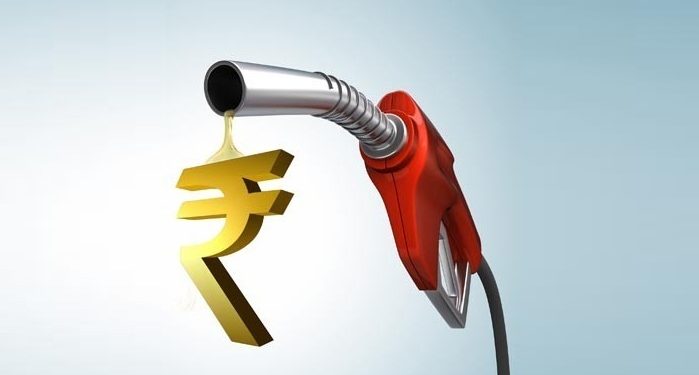This government, claiming to be the strongest ever, now seems to be lurching from one crisis to another and it seeks remedies not by looking within itself but by blaming everyone else. The blame game happening now, in the seventh straight year of being in government, does not seem to wash any more with citizens who were earlier vehement supporters of the ruling political party, the BJP.
The government is still trying the same tactic of Congress-bashing when the runaway fuel prices are soaring record high, burning holes in the pockets of the common man. These continuous increases have taken place in spite of the international prices of crude having been on the lower side. Now, however, the world seems to be steadily revving up, indicating a possible upward spurt in global demand for petroleum. The pandemic had forced a dull season for crude. Market for petroleum had drastically shrunk but things are changing and once this new situation entrenches itself strongly in the new normal scenario, the demand for energy could shoot up. Should that happen then barrel prices would also go up.
Ironically, Union Finance Minister Nirmala Sitharaman now expects the state governments to bail her out by sharing with the Centre the burden of its failure to check fuel prices. It was she who has levied cess on fuel on the ostensible plea of improving agriculture infrastructure. The real purpose of the measure is to deny the states their share of tax on fuel and corner the money accruing from cess for defraying Central expenditure.
Many economists have written articles reminding the Centre of the rationale behind the fuel cess. Since cess is not given back to the states, the Centre is deducting a major amount under that head. In taxes, states get back 42 per cent as devolution and hence the Centre is acquiring a major portion as fuel cess instead of tax.
When the NDA came to power in 2014 the total aggregate cess was eight per cent of gross tax collections and now it has increased to 14.5 per cent. That is why the CAG has questioned the central government on why they are increasing cess and not tax. This, many observe, is an attack on the federal structure of the country.
The Union Finance Minister is smart to go on the defensive and admit that the common man would like only to see the Centre reduce the fuel prices and won’t listen to any arguments of decrease of international crude production or the pricing matrix. The fact remains that people owning personal vehicles are already hit hard, while the continuing hike in fuel prices will have cascading effects on almost all items of daily consumption due to the rise in transportation costs.
The Prime Minister’s attempt to deflect criticism by squarely blaming previous Congress-led governments’ huge oil import bills sounds as poor politics and poorer economics. The Congress may not be wrong when the party’s interim president charged that the NDA has been in government for seven long years which is time enough to fix the problems and formulate its own fuel policies. It, of course, is time the government stops passing the buck to its predecessors and especially the Nehruvian economic model.
The PM recently said the middle class is being burdened because India follows a mechanism where it imports almost 85 per cent of its fuel needs. He also shared a plan for reducing India’s import dependency. But, that is too futuristic. People are paying today and living now and so one hears the desperate clamour for immediate course correction. The need of the hour is not government publicity patting its own back, but solid, tangible actions and policy initiatives exclusively aimed at benefitting the common man.







































